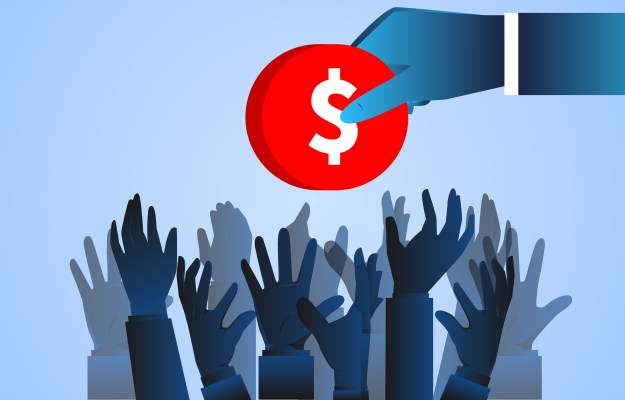Despite the venture capital asset class sitting on historic levels of dry powder, many investors aren’t deploying it, leaving their portfolio companies scrambling for financing.
Venture funding has been declining across the board this year, but the tone of how this temporary pullback could impact companies is starting to change. The mood at the beginning of the slowdown was that only subpar startups would struggle, while good companies would raise normally or raise bridge financing — not that they would ever call it that — and raise a proper round next year.
But now it seems that more companies than not are struggling.
Elizabeth Yin, a general partner and co-founder at pre-seed-focused Hustle Fund, tweeted last week that she has started to get emails from founders who had raised a seed round but were struggling to extend their runway, abandoned by their previous investors.
Yin told TechCrunch that while it’s only been a handful of emails a day, she’d never gotten them before and finds them quite jarring considering most of the companies have raised millions of dollars and the average Hustle Fund check is $50,000.
“The common thread is that they need more money,” Yin said about the companies reaching out. “I’m hearing from the companies with lead investors with great reputations and also lead investors who are newer to the game.”
Kirby Winfield, the founding general partner at pre-seed-focused Ascend, has started getting them, too. Winfield added that he’s also getting inquiries from startups that are rewriting their fundraising history to better align their pitch with the company’s actual progress.
“I had one cross my desk yesterday where a brand-name VC led the seed, which they are now calling a pre-seed,” he told TechCrunch. “I know this company. I know they raised a pre-seed and a seed round and are now coming back around and saying it was pre-seed and now we are raising a seed.”
It would be easy to say that many of these companies are scrambling because they shouldn’t have raised their last round to begin with and were propped up by the recent bull market, but Yin said that isn’t the case anymore: It’s everyone.
“There are a lot of great companies, but a lot of them are desperate,” Yin said. “There are a lot of great companies that can’t get money. The pullback is so severe it can be, and probably is, very challenging right now to get even meetings with investors.”
For some, if they secure a meeting with an existing investor, it will be for that backer to point them toward an alternative financing route with no offer of capital on their own, as Winfield and Yin have seen. Winfield knows the game especially well because he played it as founder in the 2008 crash.
“They will say, ‘Hey, go to this or that secondary regional VC — they will be excited to be on the cap table with us,'” Winfield remembered. “Some people logo chase and there is a reason that strategy gets executed. An advantage of being an operator VC is I know what you are doing.”
It’s also worth resurfacing a piece I wrote a few weeks back about the equity crowdfunding market being on track for its best year yet. This growth is partially due to more VCs steering their existing portfolio companies toward crowdfunding to extend their runway rather than do it themselves, which Yin notes is especially odd for the billion-dollar funds.
“What’s crazy to me is that some of these companies are still in the seed stage backed by very large firms who dabbled at this stage,” Yin said. “An extra $200,000 or $500,000 wouldn’t make a dent in a billion-dollar fund even if it went horribly.”
So what does it all mean? For some startups, it means they will rightfully shut down. For others, they may have no choice despite solid underlying business fundamentals. While some VCs may be looking at this break as a much-needed vacation, they may come back to find a disaster in their portfolio, or worse, companies on the brink of going out of business that were worth saving.
“This is a common thread across strong companies and weak companies, I think people are pretty down in the dumps about it,” Yin said. “It’s extremely frustrating especially if you do have a good business and you can’t even get a meeting. There is that aura — not depression but of gloom.”
